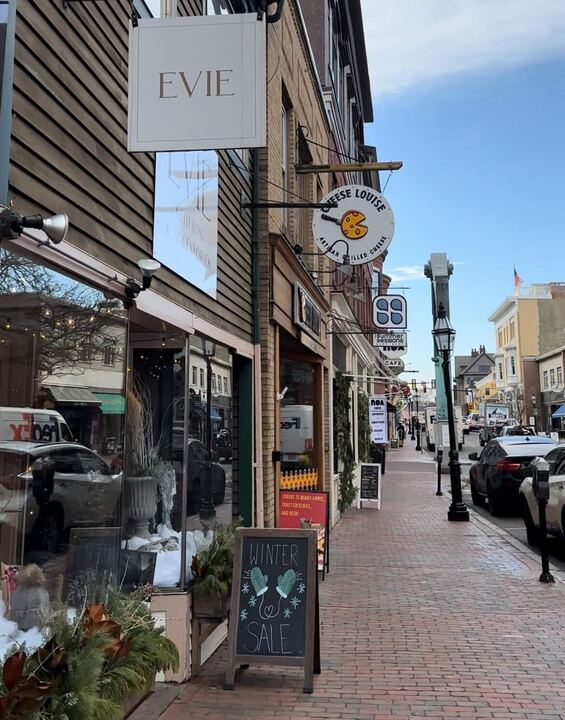By Miranda Wilder, Staff Writer
Student activism at its finest, University of New Hampshire students gathered at the Freedom Café Tuesday evening to watch the documentary “The Last Mountain,” determined to spread awareness about the horrific effects coal mining can have and express a dire need for change.
There are currently 600 coal plants across the U.S., yet every state is effected by the toxic emission these coal plants produce. UNH currently invests over $3 million in the fossil fuel industry, and the Student Environmental Action Coalition (SEAC) is looking to get its university investing in something a little more green and conducive to the environment with their ongoing divestment campaign.
“Divestment is in regards to fossil fuels in general,” Chris Grinley, co-coordinator of SEAC said. “The moral standpoint in that is we’re making money.”
Grinley decided to organize this event at the Freedom Café, a quainter, more intimate space rather than the usual screening and discussion in the Memorial Union Building. Many students ordered coffee, tea and snacks as they watched the film, not only enjoying the comfort of a coffee shop, but also allowing for their money well spent to go towards the aid of human trafficking, as Freedom Café donates much of its proceeds to causes in need of support.
Right now, SEAC simply wants students to know what is going own and how it is affecting them.
“In particular, [we want] more education around environmental issues,” Grinley said. “There are a lot of things that are going on that are not good for the environment. A lot of people know that, but not how they can get involved.”
Showing this documentary is one way to start.
“I’m baffled,” junior Molly Biron, a dual major in psychology and Justice studies as well as a prospective law student said. “Right now I’m so overwhelmed that I basically can’t even articulate my thoughts. It was really hard for me to watch the video. I was really beside myself about it; it’s upsetting to me that no one really knows about it.”
Both Biron and Grinley agree that wind turbines, as well as other alternative methods, would be better than the current process that is not only hindering the environment, but potentially causing health issues and emitting vast amounts of mercury into the oceans, which affects the amount of fish consumption.
“They’re destroying mountains, communities, the planet,” Grinley said. “If we think it’s okay to make money off the destruction of the planet and the people, that’s an issue for me. Wind farms, solar energy, I think nuclear power needs to be considered too. Obviously all of them need to meet safety standards, but also all of them are better for the planet and the people of the communities.”
Alternative windmill farms have the potentiality to power 70,000 homes, depending on the area and it’s sustainability for wind-backed energy.
Biron points out the fact that in one coal mining town the documentary explored, there were six different people in one neighborhood that have died of brain tumors. Not only that, but the video explored the idea that coal mining emissions may be a potential cause of autism. Massey Coal, a company widely focused on in “The Last Mountain,” currently is in violation of 60,000 safety standards yet has not had to pay a single fine.
“People my age, my friends, don’t take the time to educate themselves,” Biron said. “I didn’t know anything [before], and now I want to work for the EPA (Environmental Protection Agency).”
In fact, Biron was so distressed she stayed to talk more about divestment and what UNH can do to help, along with several other students, many contributors and members of SEAC, after the screening.
“I don’t even know if I can sleep tonight,” she said. “I stayed here because I need to digest this.”
New Hampshire may not be incredibly affected by the coal mining industry, but as Grinley points out, we live in a very political state.
“Essentially a lot of politicians come through New Hampshire and speak in New Hampshire,” he said. “If the student body is informed and ready to ask them questions, then when the media is covering [this] rather than talking about meaningless politics that divide the country, we’ll know about issues that are actually important to people and not the corporation.”
One reason Grinley chose “The Last Mountain” over other documentaries is because it not only focuses on areas primarily affected, but the nation as a whole.
“I think this documentary is very straightforward – coal mining is killing people,” he said. “It goes into the political aspect of funding campaigns and does a great job of combing threats of dirty energy and climate change, and how our political system favors corporate profit over the planet.”
At the same time, however, he does not want to do more harm than good.
“I’m really passionate about making sure people have jobs, and not destroying communities because it is inevitable, and we immediately need to stop coal mining and fossil fuel use in general,” he said. “Making sure that we’re moving away from coal mining, but not leaving those communities out to dry.”
Despite Durham not being one of those communities sustained by coal mining, both Biron and Grinley see long-term effects that could potentially make this issue much more prevalent in the state of New Hampshire.
“If this keeps going and they exhaust Appalachia, they might move to the northeast and cause an influx,” Biron said. “They’re going to exhaust the resources. Non-renewable is finite, and they’re just going to find more mountains to deteriorate.”
Grinley encouraged everybody at the screening to attend the follow-up screening of “Pay 2 Play” on Wednesday evening, and also attend a lecture hosted by the Peace and Justice League, for which Biron is a member, on Saturday at 10 a.m. This will be held in the Strattford Room in the MUB and is set to be centered around money and politics. It has even been rumored that Boston Globe may be covering the event, according to Grinley.
“It’s not something you see every day in New Hampshire,” he said of fossil fueling and its negative, sometimes even criminal effects. “We are not the ones who have to deal directly because it’s not happening in the state, but we do have to deal with the ramifications. Just because people aren’t dying in New Hampshire doesn’t mean we shouldn’t care.”




















